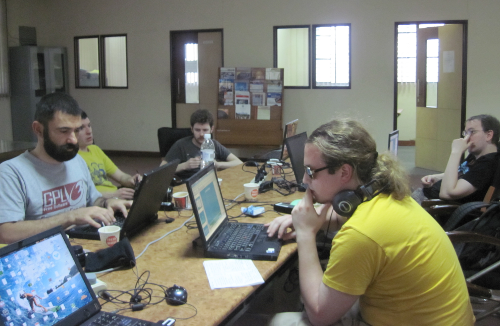
Time to blog again about what I did during the past two days: as planned, I did the site visit at the Dayananda Sagar Educational Institutions and spent quite some time discussing conference details with the volunteer leads. The college already has a Tech Club and its members are very enthusiastic about starting a separate GNOME / Free Software entity right after the conference. I was also very impressed to see that all the 100 computers from the computer room were already installed with GNOME. So here is my summary of things for 29th March (2nd Day):
- Site visit with some professors and room inspections for the upcoming five days activities
- Briefed volunteers for exhibition arrangement, registration, performance for opening / closing ceremony, master of ceremony and photo / video taking, etc.
- Finished all the marketing material artworks for GNOME.Asia Summit 2011
And the summary of what I have done on 30th March (3rd Day) is:
- Finished the artwork of the two-page badge together with schedule
- Prepared and set up the GNOME 3 HelpDesk
- Gave some insights to Chandni (Participant of GNOME Outreach Program for Women) for her upcoming presentation
- Discussed with Vincent and Allan about planning of the GNOME 3.0 release day, my tasks will be to contact all the GNOME 3 party organizers to localize and advertise the press release as well as announce the release on the GNOME.Asia website


My plan for tomorrow will be to work on the GNOME 3 HelpDesk (both virtual and physical), contacting more press to join the conference and finishing all the outstanding items in the event checklist (we still have quite some work to do).
To be continued…

